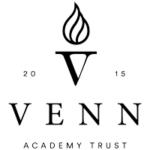Writing
Our Writing Curriculum
What is the writing ambition?
At The Whitehouse, all pupils will be supported and encouraged to develop the skills as a writer. We acknowledge that the start of their writing journey will be different for individual pupils. Pupils will be challenged to improve their basic writing skills, to minimise the barrier to other learning and opportunities across the curriculum. Whitehouse pupils will be encouraged to express themselves and communicate their idea in a manner appropriate for the audience and purpose. We want to enable the pupils to write and communicate using a varied vocabulary within different contexts. We aim for all pupils to have more positive views and experiences of writing to take back to their next setting or mainstream school.
‘Reading is breathing in and writing is breathing out.’ Pam Allyn
What are the main elements in the writing process and how are these taught?
At The Whitehouse, we understand that writing is a complex process and can be difficult for many reasons. Therefore, we focus on developing basic skills for a base level competency that the pupils can take forward into other learning and world experiences.
Transcription
Handwriting and letter formation
Neat and legible handwriting is an essential tool to enable writing to be read and understood by the reader.
However, handwriting can be a significant barrier to learning and for this reason we place a high priority on developing a simple, flowing pre-cursive handwriting style.
In our discrete daily handwriting lessons, pupils are taught formation and joins in letter teams, through over learning, modelled and practiced sessions.
Spelling
Accurate and consistent spelling is a critical component of communication.
At The Whitehouse, whilst some children may be confident readers, many struggle to make connections and transfer their knowledge and awareness of word and spelling patterns into writing.
Pupils at The Whitehouse have a discrete weekly spelling lesson, which is appropriate to their stage of development and existing knowledge of spelling. There are additional opportunities for the practice and application of spelling in different contexts throughout the week.
Composition
Composition is articulation and communication of ideas and the structuring of them in speech and writing for a listener and reader.
Whilst we recognise the importance of writing for different purposes and contexts, Whitehouse pupils need additional support and scaffolding to achieve this as many new Whitehouse pupils are reluctant to write.
The writing process is a simple, repetitive skill based 2-week cycle. It is based around a stimulus of quality literature, real events or real-life experiences. Throughout the process there is a heavy focus on sentence structure, developing a wide vocabulary and the acquisition of grammar skills appropriate to the pupil’s stage in writing.
It is essentials for our pupils to experience adults modelling the writing process frequently and to orally rehearse and articulate their ideas before they plan and write.
Why is the development of quality vocabulary important for Whitehouse pupils?
Vocabulary can be described as the glue that holds stories, ideas and concepts together. It allows pupils to express their ideas and communicate effectively. However, this can be a significant hurdle for Whitehouse pupils, in both reading and writing. To develop this, we promote the use and knowledge of key vocabulary across the whole curriculum. In English, teachers carefully plan and model the use of more challenging vocabulary.
How do teachers deliver an ambitious writing curriculum?
At The Whitehouse, there is an expectation that all pupils will write daily in their English lessons, with increasing quantity and accuracy. Pupils will be encouraged and motivated to write purposefully using high-quality texts and stimuli. Whilst the pupils are with us at The Whitehouse, our aim is that all pupils will improve their fundamental writing skills and knowledge to transcribe and compose ideas confidently regardless of their previous writing experiences.
How are staff trained in the development of writing?
The Head of School and leadership team prioritise the development of the teaching of writing across the school. All teachers and support staff are regularly trained to assist writers at different stages of development, and support and challenge pupils effectively.
How are knowledge and skills acquired in writing?
The children are taught in daily writing lessons, this includes a weekly Spelling and Grammar lesson to ensure the children gain the necessary skills and knowledge to communicate their ideas effectively. We recognise that many of our children struggle with the writing process, so all the teachers try to personalise lessons to children’s needs and within the class expectations are adjusted to meet the children’s abilities. Through our daily personalised learning session children are required to learn spellings matched to their abilities and are provided with activities to improve their handwriting appropriate to their age and proficiency.
What enrichment opportunities do pupils receive in writing?
At The Whitehouse, we want to engage the children in the writing process so we aim to give them a clear purpose for their writing. We want them to have high quality reading material to inspire them to write so we carefully select a wide range of books that will appeal to children of very different abilities and experiences. We study the work of poets as well as book authors and we aim to show authors writing process through the use of videos, visits of authors and engagement in activities organised by Hull Library Service like The Big Malarchy. We ensure that we promote classic stories and texts, traditional tales, modern stories and books and authors that reflect the world around them and challenge and support their thinking.
Further information
“Whitehouse Pupil Referral Unit is a calm and friendly environment.”
“Pupils are happy, enjoy coming to school and say that they feel safe.”
“Staff know the pupils well and pupils respond to these positive relationships.”
“Parents comment that their children’s behaviour improves significantly after joining the school.”
“By the time a pupil leaves the school, they are well prepared for either mainstream school or specialist provision.”
“Leaders, staff and governors are ambitious for pupils to achieve their potentials.”
“Teachers encourage pupils to develop a love of reading. Pupils have access to lots of different types of books.”
“Pupils enjoy taking part in a wide range of activities that broaden their learning.”
“Pupils can concentrate on their work because behaviour is managed exceptionally well.”
“Members of the governing body and the wider academy trust are ambitious for the school and for what pupils can achieve.”
“Pupils’ ability to manage their own anger and emotions improves after joining the school.”



